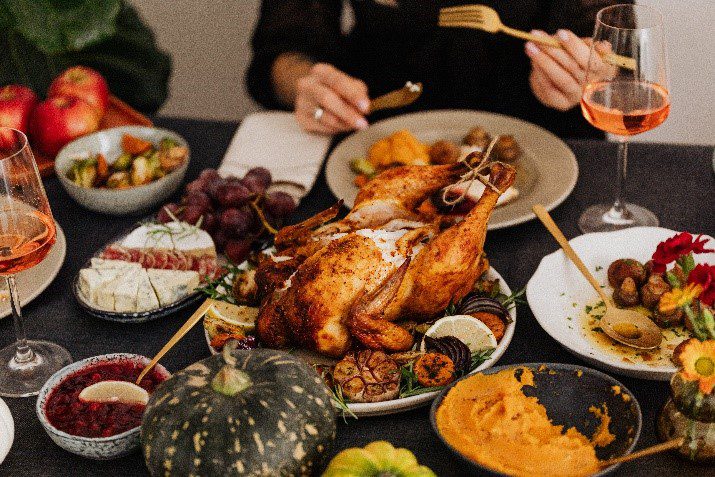The average adult gains one pound every year between Thanksgiving and just after the new year. One pound doesn’t sound like much, but most adults fail to lose this added weight. That single pound adds up over the years, and other lifestyle choices can pack on additional weight.
Several factors contribute to weight gain during the holidays. Colder weather forces many people indoors, where they’re more likely to be sedentary. Holiday culture encourages people to overindulge, and holiday foods are often high in calories. However, avoiding the typical holiday weight gain isn’t impossible. Here are several tips to help prevent weight gain over the holidays:
- Be active when visiting with family and friends. Many families have movies they love to watch together over the holidays, while others may bond while baking holiday treats. You don’t need to eschew these traditions but consider adding a new tradition of being active together. For example, find a seasonal fun run/walk to participate in or go for a family walk around the neighborhood to look at the decorated houses.
- Keep your pantry stocked with healthy snacks. If you are surrounded by cookies, cakes, and other holiday treats, you are much more likely to overindulge. Keeping healthy snacks on hand can help you make better food choices. If you’re in an environment that you can’t control, such as a work function or visiting with family, try to remain aware of your snacking. Mindless grazing can rack up a considerable number of calories over the day.
- Don’t burn the midnight oil. Many people stay up late when they’re visiting with family and friends. However, sleep deprivation can lead to weight gain for several reasons. Hunger hormones spike, your metabolism slows, and you’re less likely to exercise if you’re tired.
- Eat enough protein. Many holiday meals are loaded with carbs and provide minimal protein. Increasing your protein intake helps you feel fuller for longer, activates your metabolism, and increases hormones that reduce your appetite.
- Don’t cook while hungry. If your stomach is rumbling as you prepare a decadent meal, the temptation to nibble will be high. A little taste test can turn into a considerable bite if you’re hungry. Those calories add up and can cause inadvertent weight gain.
- Be mindful of liquid calories. Eggnog, hot chocolate, soda, and alcohol are holiday mainstays in many households. However, these beverages are empty calories with an excessive amount of sugar. Whenever possible, opt for water. In addition to keeping you hydrated, it can also prevent unnecessary grazing. Many people mistake thirst for hunger and consume extra calories as a result.
- Make smart substitutions. Depriving yourself of all holiday treats isn’t realistic. However, you can make substitutions while cooking and baking to lower the calorie, fat, and sugar content of your meals. Some examples include replacing butter or oil with applesauce, using zero-calorie sweeteners instead of sugar, and swapping mayo and sour cream with plain Greek yogurt. Your cooking style influences calories as well. Grilled, baked, or steamed foods have much fewer calories than the fried versions.
- Hold yourself accountable. It’s easy to ignore weight gain if you don’t see the numbers creeping up on the scale. Remain aware of your weight and consider finding an accountability buddy. Link up with a friend who has similar health and fitness goals.
Maintaining or losing weight over the holidays can feel like an insurmountable task. Following the above tips can help, but a healthy diet and regular exercise are critical factors. If you’re struggling to lose weight despite your best efforts, you may need help beyond simple lifestyle changes. Contact us to learn how weight loss surgery can help you lose stubborn weight.





